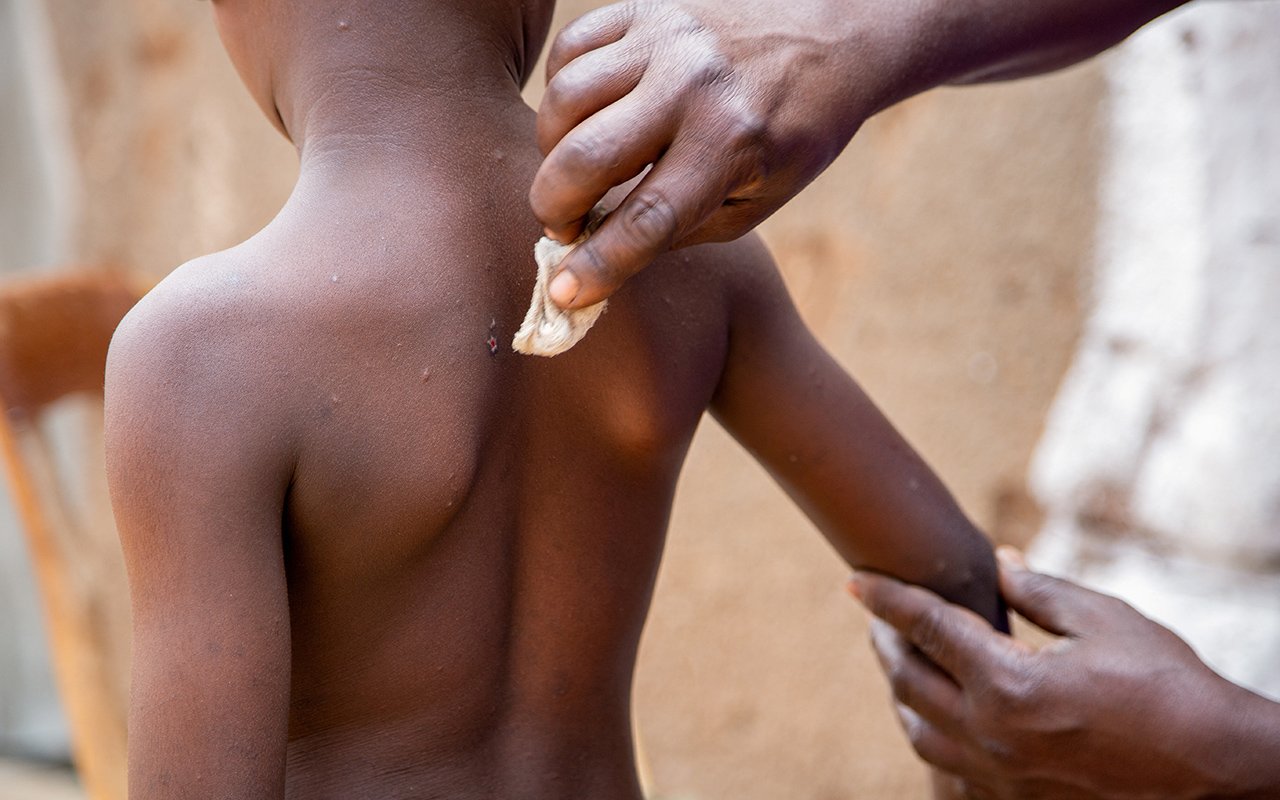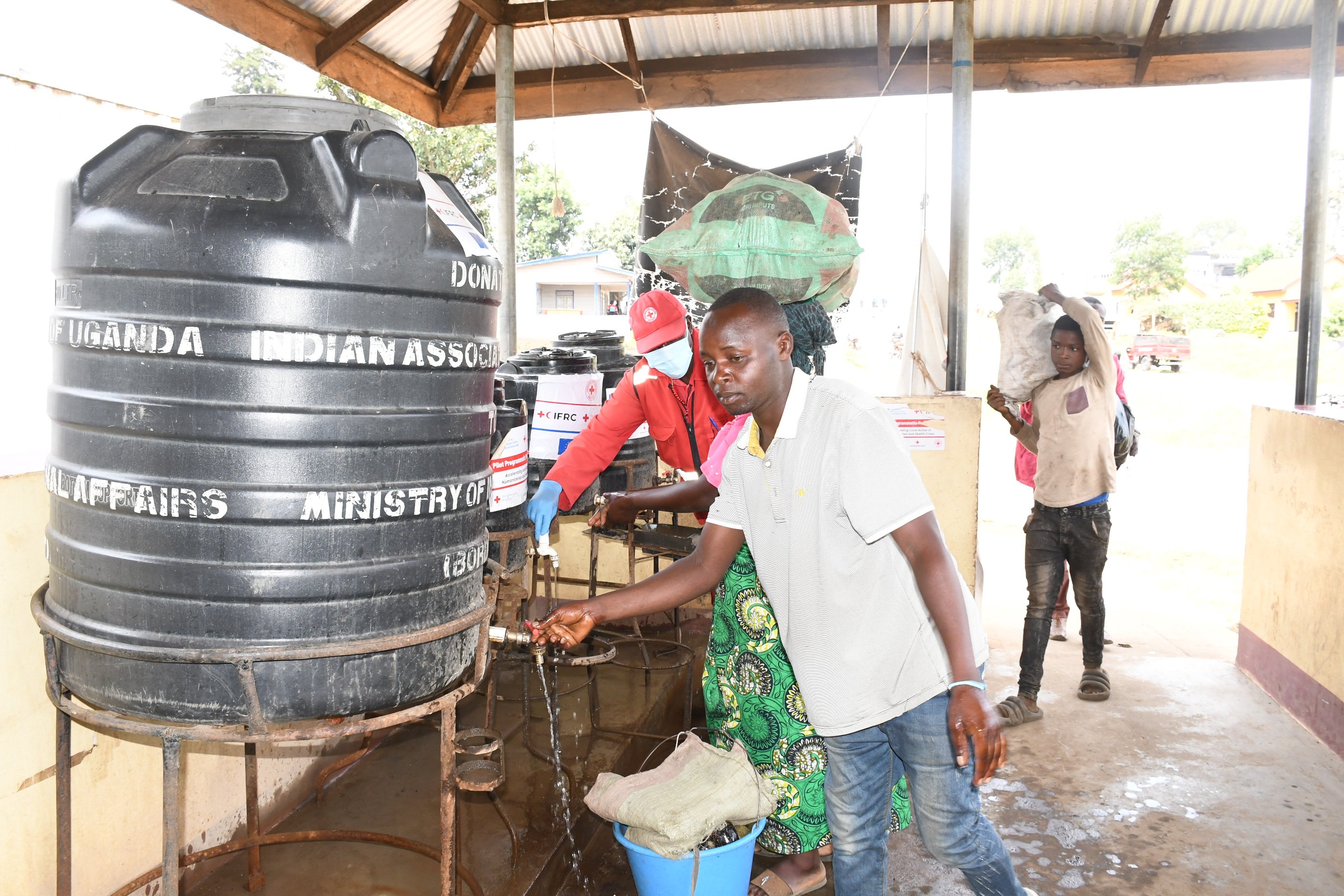Govt traces 95 contacts of Mpox patients as cases rise

A man shows the marks on the skin of his six-year-old son after he recovered from mpox in Bujumbura, Burundi on August 28, 2024. PHOTO/ REUTERS
What you need to know:
- The ministry emphasises that one should contact the healthcare facility before going there to ensure they can separate them from others to minimise risk of disease spread.
Statistics from the Health Ministry indicate that at least 95 contacts of Mpox patients have been traced as cumulative confirmed infections rise to 10.
The contacts, who are followed up for 21 days in their homes, were listed in Kampala (16), Kasese (53), Amuru (11) Mayuge (15). Of the cumulative 95 contacts, 53 in Kasese have completed the 21 follow-up days.
For the 10 confirmed Mpox cases, Wakiso is the new district that has also reported a case, signalling an expanding outbreak. Kampala also recorded one more confirmed Mpox case, bringing its cumulative total number to two, Mayuge has two new cases and a cumulative total of three, and Kasese has one new one, bringing their cumulative total to three.
Asked about concerns that the viral disease could get out of hand, Lt Col Dr Henry Kyobe, a government epidemiologist and the Mpox incident commander, said the government is prepared to combat the outbreak.
“This shouldn't worry. We have averted other bigger problems. So this one may not be anything that may get out of hand and we are unable to handle,” he said. Dr Kyobe, however, said some of the patients had no history of travelling out of Uganda, meaning they were "probably secondarily infected by other individuals" in Uganda.
Dr Daniel Okello, the director of public health at the Kampala Capital City Authority, said the government has established isolation treatment centres at Naguru Hospital and Mulago National Referral Hospital ready for any cases that may come up. “The centres are for managing sick people. We don’t bring contacts to the isolation centres,” he said.
The viral disease, which was first reported in the country in July, spreads through close physical contact, sexual intercourse and sharing clothes or materials touched by an infected person. The disease starts manifesting with fever, and body weakness followed by skin rash, blisters and pus-filled sores on the skin.
Health workers also advise the contacts to monitor closely for any signs or symptoms of Mpox, take their temperature if they feel unwell, wash hands with soap and water or use an alcohol-based hand sanitiser regularly.
Health workers also say the contact should avoid close contact with people at higher risk of infection such as young children, older people, people with weak immune systems, and people who are pregnant.
They are also advised to not donate blood, cells, tissue, breast milk, semen, or organs. If the contact had sex or intimate contact with someone with Mpox, for 21 days you should, they are advised not to have sex and avoid close physical contact with other people.
Dr Kyobe said besides the sensitisation that the ministry has increased, they are also doing testing and treating the patients as they wait for the Mpox vaccine.
“For vaccines, these are repurposed vaccines of smallpox and they are the same vaccines used in the eradication of smallpox over 30 years ago. So we may not have any issues of safety. We may only have issues around efficacy,” he said.
“When we get the doses, we may need to re-prioritise who gets it first like we did in Covid. We have not had any death associated with Mpox and the recovery takes time because the virus has a long incubation period. We don't have rapid Tests right now. Our tests are done in Bwera mobile lab, Uganda Virus Research Institute in Entebbe or National Public Health Lab in Butabika,” he added.



